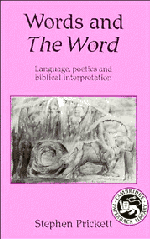Summary
When, in 1809, Baron Wilhelm von Humboldt was given the task by Frederick William III of creating the new University of Berlin, one of his basic principles was to separate theology from the study of the humanities, and to place the latter firmly within the faculty of Arts (Philosophische Fakultät). Following the lead given by such eminent academic reformers as Thomasius at Halle and Munchhausen at Göttingen, Humboldt's policy, which aimed at freeing the humanities from the dead hand of the scholastic theology then practised in most German universities, was an essential step in the evolution of the modern idea of the university and of the disciplines of literary studies and philology. For Humboldt, theology (like the natural sciences) was not conducive to the new spirit of Wissenschaft that lay at the heart of his conception of what a university should be, and which would find its fullest expression in a faculty of Arts. This notion of the centrality of the humanities to a university was one shared by other contemporary university reformers: Fichte, Schelling, Schleiermacher, and Steffens. It was to have momentous and ultimately unforeseen consequences.
- Type
- Chapter
- Information
- Words and The WordLanguage, Poetics and Biblical Interpretation, pp. 1 - 3Publisher: Cambridge University PressPrint publication year: 1986



